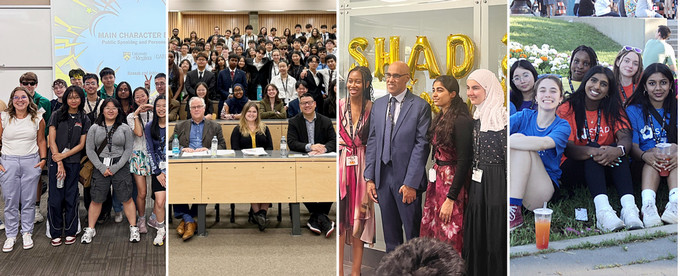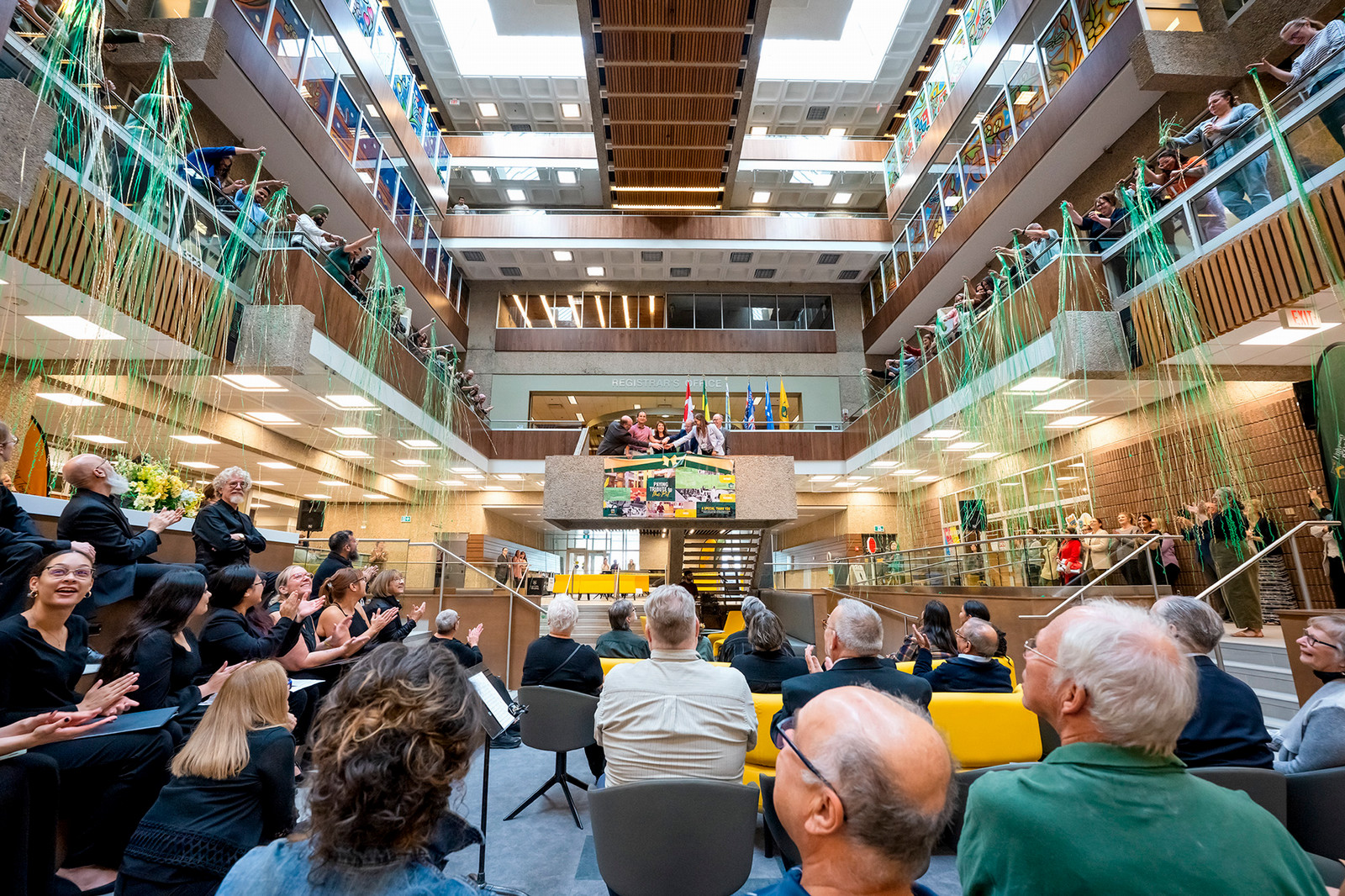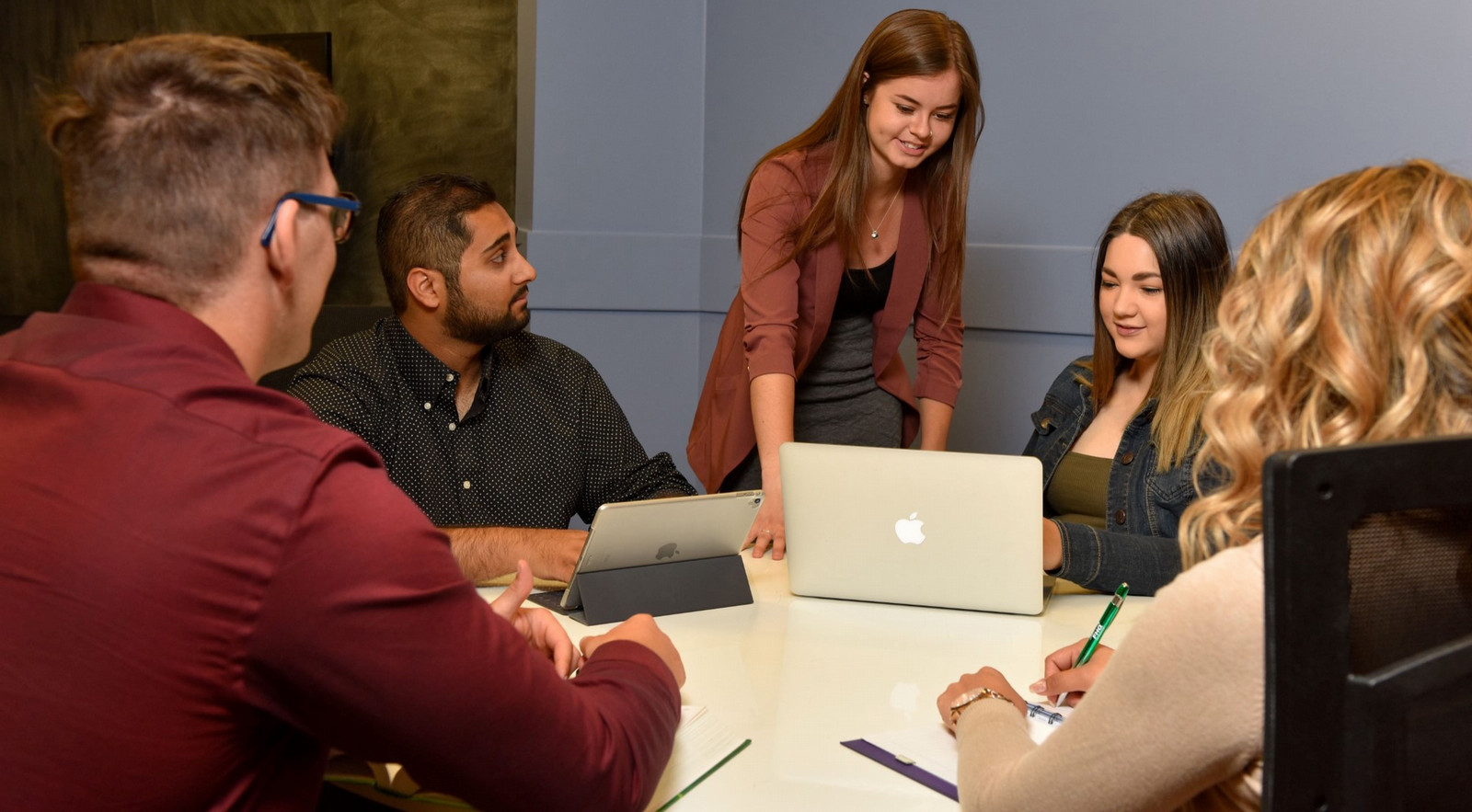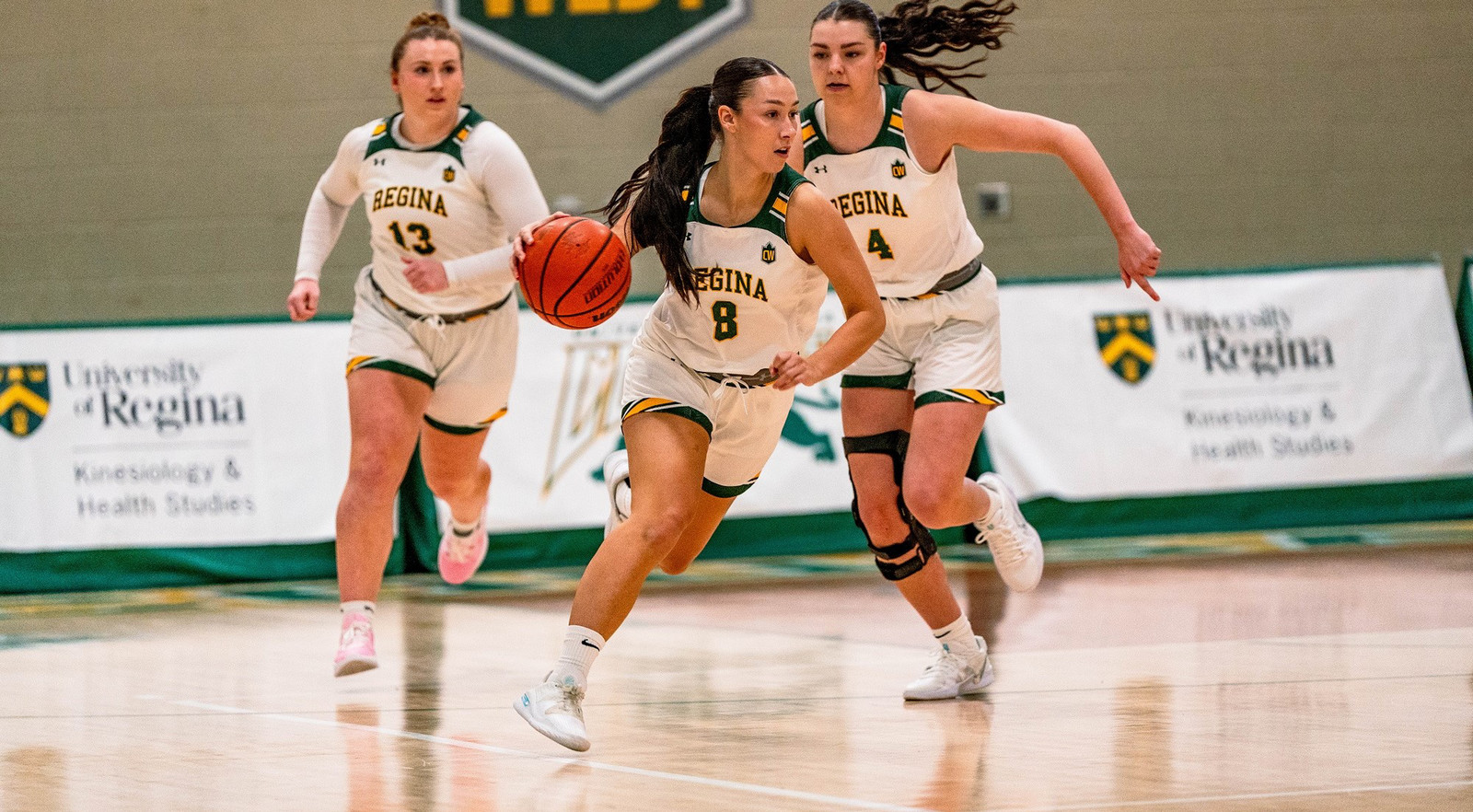During this past July, the University of Regina welcomed a cohort consisting of 75 high school students in Grades 10 and 11 from across the country for a month-long immersion in Science, Technology, Engineering, Arts, Math, and Entrepreneurship (STEAM). They were here as part of the Shad Canada program— a month-long summer STEAM and entrepreneurship program that empowers high school students across Canada to explore, collaborate, and create change. Among the participants were Anishka Moonsamy from Nanaimo, British Columbia and Waaiz Israr from Ottawa, Ontario whose experiences show how hands-on learning and mentoring grow confidence, clarity, and community.
Failure can come before you succeed.— Anishka Moonsamy, Shad Canada Participant
Delivered in partnership with Shad and facilitated by the Graduate Advanced Training & Entrepreneurship (GATE) Centre at the U of R, students experienced life on campus and learning. The program connected visiting students with U of R faculty, engaging in activities ranging from wearing lab goggles to late-night sketching, from taking field notes to creating fast prototypes, and community focused challenges.
A design challenge with real stakes
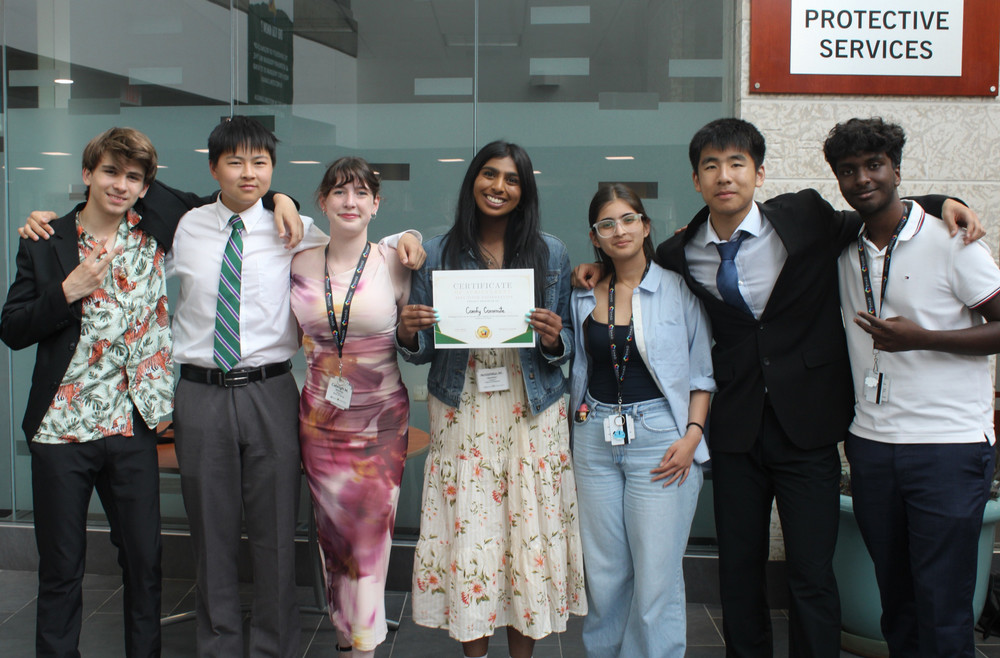
Anishka Moonsamy (centre, holding certificate) and her teammates celebrate winning the "Best Pitch" award for their innovative all-season e-bike cover. Photo Credit: Anishka Moonsamy, Shad Participant
The cornerstone of the Shad experience is the design challenge. Moonsamy’s team prototyped an all-season, weatherproof cover for e-bikes so commuters can ride year-round — earning “Best Pitch” for clear framing and practical design. Reflecting on the journey, Moonsamy says “failure can come before you succeed,” a lesson her team learned while iterating under time pressure. Israr’s team developed the idea of Transit System Canada, a plan focused on reliability, affordability, and equity in public transit.
Hands-On Discovery
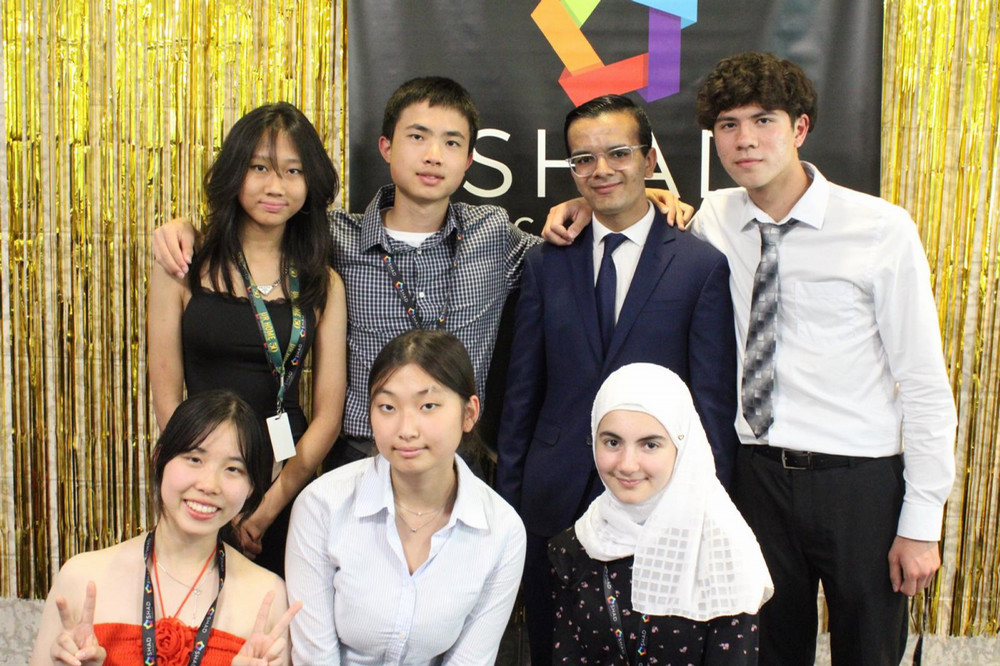
Shad Canada design-entrepreneurship team at the University of Regina after presenting a sustainable public-transit solution; top row (L–R): Sarah Gong, Jeffrey Hum, Waaiz Israr, Nathaniel Lamoureux; bottom row (L–R): Sophia Yang, Nayeon Choo, Lara Abou Alborghol. Photo Credit: Waaiz Israr, Shad Participant
Throughout the month, workshops by the GATE Centre turned concepts into muscle memory. In one session, students used “calculator robot cars” to program the robots directly using the calculator—from lighting a simple LED to sending the robot to roll a set distance, combining programming and robotics together, which made tough concepts concrete. It wasn't one big “aha,” but many small clicks that built their confidence over the month.
Moonsamy discovered that she enjoys microbiology after a lab session that rewarded careful, patient work. Israr explains that he arrived focused on engineering but learned to balance empathy with strategy by surveying public transit users, folding feedback into design decisions, and pitching to wider audiences.
“From STEM breakthroughs to unforgettable adventures, to friendships that feel like family, Shad brought it all together, and it will stay with me forever.” explains Israr.
A faculty-led session on Indigenous perspectives offered a distinctly Saskatchewan lens for students visiting from across the country. The session linked design choices to local histories, winter realities, and community needs. Outside class, these students toured campus, experienced a Saskatchewan Roughriders game, and camped in northern Saskatchewan.
A campus that empowers
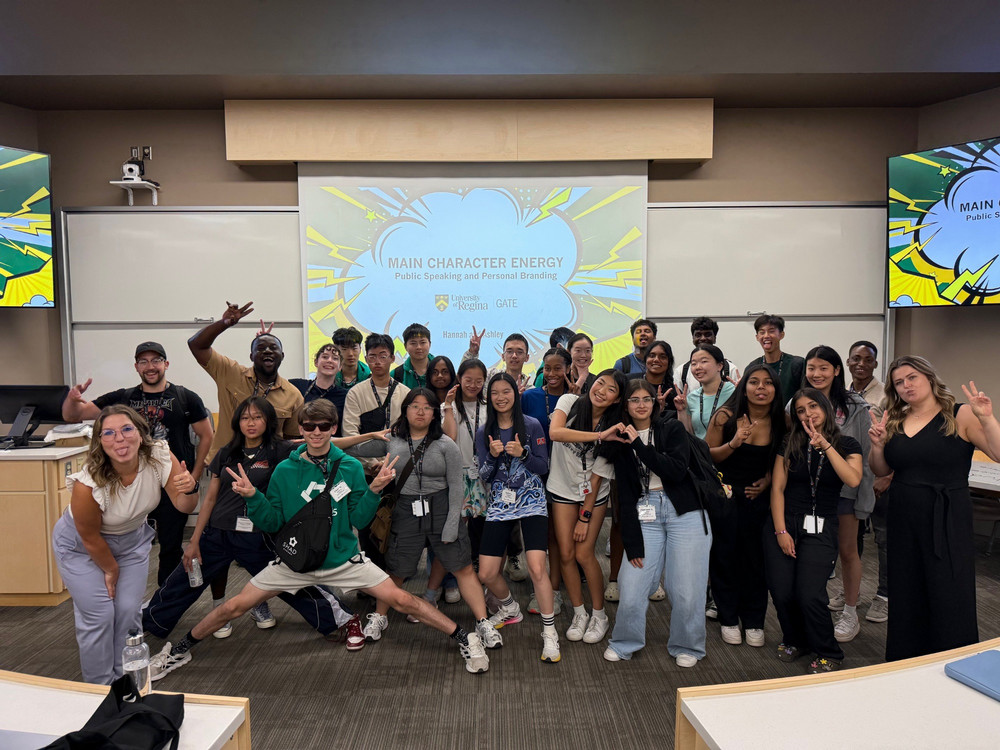
Shad 2025 cohort with GATE facilitators celebrating completion of the ‘Main Character Energy’ public-speaking and personal-branding session at the University of Regina. Photo Credit: Ashley Dennison, Graduate Advanced Training & Entrepreneurship (GATE) Centre
Students praised U of R's easy-to-navigate campus: short walks between residence, labs, and classrooms — and mentors from the GATE team who kept projects moving; with instructors stepping in when deeper expertise was needed. That mix of structure and openness is what turned the campus into a learning partner rather than just a venue.
Bruce Anderson, Instructor from the Hill and Levene Schools of Business, oriented teams to the design process during class time.
“I saw students who were fantastically receptive to feedback and very willing to embrace the process,” says Anderson.
Dr. Aziz Douai, Dean, Faculty of Graduate Studies and Research (FGSR), was excited to host Shad at U of R because it showcases the transformative power of experiential learning and inclusive spaces that help the next generation of innovators thrive.
If you or a youth you know are interested in applying to the Shad Canada program, applications for summer 2026 open on September 15, 2025. Learn more and apply today!
”The U of R-Shad partnership is ultimately about the intersection of curiosity and impact and aligns with the University’s broader commitment to experiential learning and community engagement,” says Douai.
Moonsamy and Israr both say the month changed how they see themselves. Israr points to growth in teamwork, leadership, and communications skills that he says he will carry into Grade 12 and beyond. Moonsamy says, “ the U of R campus fostered a strong sense of community, where I felt truly welcome and supported, transforming my Shad experience into the best month of my life and connecting me with friends I talk to every day.”
Banner photo: Shad Canada’s July 2025 cohort at the University of Regina campus, showcasing students collaborating in workshops and building friendships on campus under the guidance of the GATE team. Photo Courtesy: Photo courtesy of Graduate Advanced Training & Entrepreneurship (GATE) Centre
About the University of Regina
At the University of Regina, we believe the best way to learn is through access to world-class professors, research, and experiential learning. We are committed to the health and well-being of our more than 17, 200 students and support a dynamic research community focused on evidence-based solutions to today’s most pressing challenges. Located on Treaties 4 and 6—the territories of the nêhiyawak, Anihšināpēk, Dakota, Lakota, and Nakoda peoples, and the homeland of the Michif/Métis nation —we honour our ongoing relationships with Indigenous communities and remain committed to the path of reconciliation. Our vibrant alumni community is close to 95,000 strong and enriching communities in Saskatchewan and around the globe.
Let’s go far, together.
